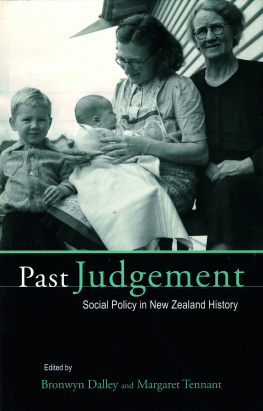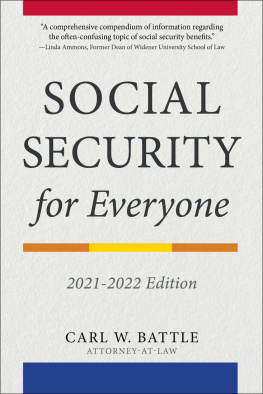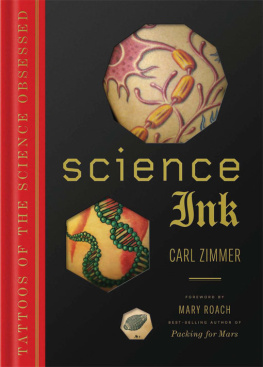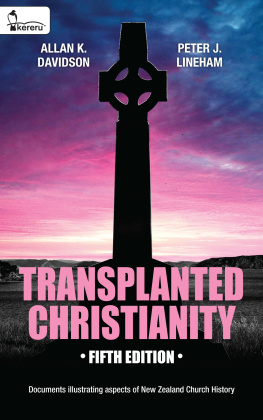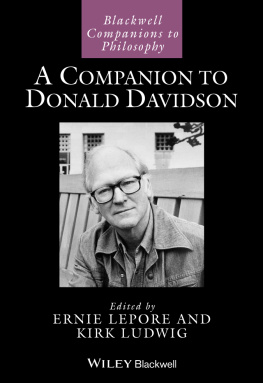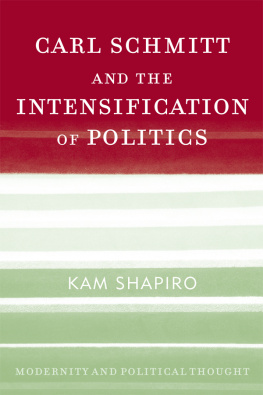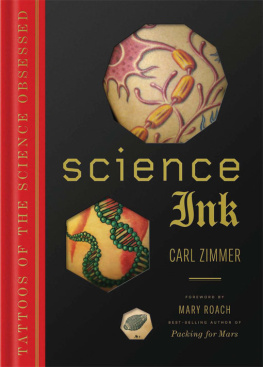
Social Science Research in New Zealand
Other books by Martin Tolich and Carl Davidson
Tolich, M., & Davidson, C. (1999). Starting fieldwork: An introduction to qualitative research in New Zealand. Oxford, England: Oxford University Press.
Tolich, M., & Davidson, C. (Eds). (1999). Social science research in New Zealand: Many paths to understanding. Auckland, New Zealand: Pearson Education.
Tolich, M. (Ed.). (2001). Research ethics in Aotearoa New Zealand. Auckland, New Zealand: Longman.
Davidson, C., & Voss, P. (2002). Knowledge management: An introduction to creating competitive advantage from intellectual capital. Auckland, New Zealand: Tandem Press.
Lunt, N., Davidson, C., & McKegg, K. (Eds). (2003). Evaluating policy and practice:A New Zealand reader. Auckland, New Zealand: Pearson Education.
Tolich, M., & Davidson, C. (Eds). (2003). Social science research in New Zealand:Many paths to understanding (2nd ed.). Auckland, New Zealand: Pearson Education.
Tolich, M., & Davidson, C. (2011). Getting started: An introduction to research methods. Auckland, New Zealand: Pearson Education.
Sieber, J., & Tolich, M. (2013). Planning ethically responsible research. Thousand Oaks, CA: SAGE.
Tolich, M., & Smith, B. (2015). The politicisation of ethics review in New Zealand. Auckland, New Zealand: Dunmore.
Tolich, M. (Ed.). (2016). Qualitative ethics in practice. Walnut Creek, CA: Left Coast Press.
Iphofen, R., and Tolich, M. (2018). The SAGE handbook of qualitative research ethics. London, England: SAGE.
Tolich, M. (2018) Public sociology capstones: Non-neoliberal alternatives to internships. Abingdon, England: Routledge.
Social Science Research in New Zealand
Edited by Martin Tolich and Carl Davidson
Contents
Martin Tolich and Carl Davidson
Martin Tolich and Carl Davidson
Barry Smith
Andrew Butcher
Marita Leask
Lindsey MacDonald
Martin Tolich and Carl Davidson
Martin Tolich and Carl Davidson
Martin Tolich and Carl Davidson
Martin Tolich and Carl Davidson
Martin Tolich and Carl Davidson
Darren Walton
Judy Oakden and Julian King
Susan Morton
Paul Spoonley
Jane Kelsey
Moira Wilson and Fiona Cram
Louisa Allen
Chris Brickell
Stacey Linton and Scarlett Moody
Jay Marlowe, Martine Udahemuka, Zibulnessa Zeba Alam and Mohamud Osman
Jarrod Gilbert
Kevin Dew, Anthony Dowell, Lindsay Macdonald and Maria Stubbe
Lily George
Ruth McManus
Claire Freeman and Yolanda van Heezik
Mihi Whakatau
E ng mana,
E ng reo,
E ng waka,
E tau nei,
Tn koutou, tn koutou, tn tatou katoa.
The chances are that you will have heard someone begin a presentation or conference paper with a greeting like this one. In Aotearoa New Zealand, formal events often begin with what is known as a mihi whakatau, where mihi means to greet and whakatau means to settle. But the mihi whakatau is also a powerful place to start a book about researching this country. It positions research as being of New Zealand it ties the researcher and their research to New Zealand. In the example used above, the greeting translates as:
To all the peoples here today,
To the many languages and nationalities gathered here,
To the canoes (planes and ships) that brought you here,
To those who were here before us tangata whenua (people of the land),
Greetings, greetings, greetings one and all.
This greeting recognises the diversity of people and their languages, and by highlighting waka it also recognises that most of those present came from somewhere else. But the fourth line of the greeting has special significance; E tau nei recognises Mori as first nation people.
By evoking this statement, the authors (or any participant in the mihi whakatau) locate what follows in the context of the Treaty of Waitangi/Te Tiriti o Waitangi. Articles 2 and 3 of the Treaty give Mori access to the bounty of New Zealand. Research outputs fit in that bounty. The notion of partnership clearly signals that research conducted in New Zealand should ask how Mori have a stake in the outcome and how they are considered when the research began. The three principles set out in He Korowai Oranga (the Mori Health Strategy) apply equally to doing research with Mori. They are:
1. Partnership, which involves working together with iwi, hap, whnau and Mori communities to develop strategies for Mori health gain and appropriate health and disability services.
2. Participation, which requires Mori to be involved at all levels of the health and disability sector, including in decision-making, planning, development and delivery of health and disability services.
3. Protection, which involves the government working to ensure Mori have at least the same level of health as non-Mori, and safeguarding Mori cultural concepts, values and practices. (adapted from Ministry of Health, n.d.)
The mihi whakatau also places what is about to happen in a historical context. For researchers, this means being clear that whatever they are investigating its unlikely that it is the first piece of research on the topic. There is an obligation on researchers in Aotearoa to acknowledge that whakapapa. The literature review (see ) provides a powerful tool for doing just this.
What the mihi whakatau really signals is that doing research in New Zealand is different from doing it in other countries (which is also why local audiences need their own local textbook). It is different because of the kind of society New Zealand is, and how it came to be that way. Today New Zealand is an increasingly diverse settler society that is also fundamentally bicultural. Its also a small country, a long way away from the rest of the world. All of these aspects influence how we do research, about what, and why. As a result, while this is a book about research methods, it is also fundamentally about research customs.
A Tauiwi Disclaimer
For those who are not Mori (the tauiwi), it is useful to situate research from the status of an outsider. Consider the following opening statement by Linda Tuhiwai Smith (1999, p. 1) on the history of research in Aotearoa from an indigenous perspective:
From the vantage point of the colonised, a position from which I write, and choose to privilege, the term research is linked to European imperialism and colonialism. The word itself, research, is probably one of the dirtiest words in the indigenous worlds vocabulary.
We talk more about this issue in , explains that even Mori sometimes have difficulty negotiating it.
Introduction
This book highlights the range of research methods available to social science researchers. In the past, these methods have been loosely grouped into either





